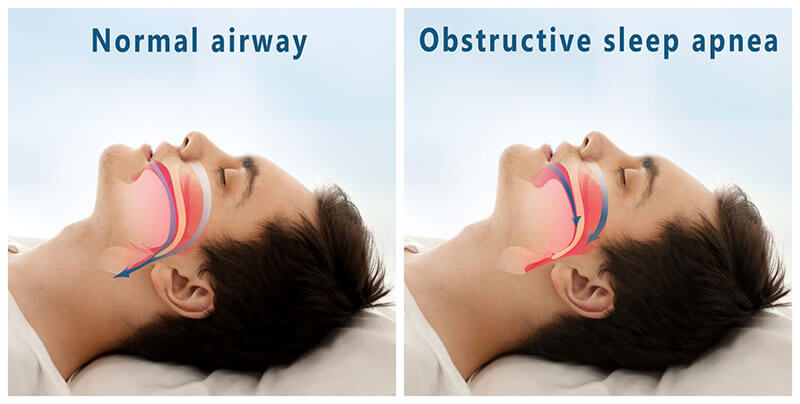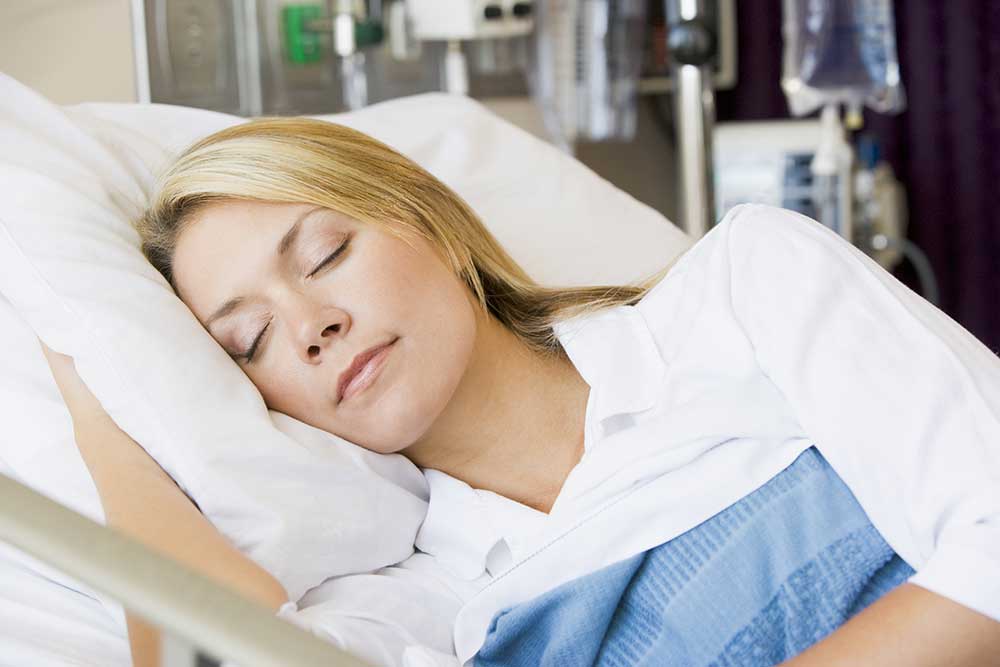What Is a Sleep Study?
A sleep study is a non-invasive procedure that helps medical professionals evaluate and diagnose sleep disorders. It provides comprehensive information about your sleep patterns, breathing, brain activity, and body movements at night.
By monitoring these factors, doctors can gain valuable insights into the quality and quantity of your sleep and identify any underlying issues that may be affecting your overall health.
Types of Sleep Studies
- Diagnostic Sleep Study (Polysomnography): This is the most common type of sleep study used to diagnose sleep disorders. It monitors various physiological parameters, including brain activity, eye movements, muscle activity, heart rate, respiratory effort, airflow, and oxygen levels.
- Split-Night Sleep Study: In cases where severe sleep disorders are suspected, a split-night sleep study may be conducted. During the first half of the night, diagnostic monitoring is performed, and if a sleep disorder is confirmed, treatment options such as Continuous Positive Airway Pressure (CPAP) therapy may be initiated during the second half of the night.
- Home Sleep Study: Home sleep studies, also known as portable monitoring, are a less comprehensive but more convenient option for diagnosing specific sleep disorders like sleep apnea. They typically monitor fewer parameters and are suitable for certain cases where full polysomnography is not necessary.
The Sleep Study Process
When it comes to undergoing a sleep study, you’ll go through the following steps:
- Consultation and Preparation: Your journey begins with a consultation with Dr. Doneskey in Bellevue, WA. During this initial visit, you’ll discuss your sleep concerns, medical history, and any symptoms you’ve been experiencing. We’ll explain the sleep study process, address any questions or concerns you may have, and refer you to a sleep specialist.
- Study Setup: When you arrive at the sleep clinic, a sleep technologist will guide you through the study setup. Electrodes will be gently attached to various parts of your body, including your scalp, temples, chest, and legs, to monitor brain waves, eye movements, muscle activity, and heart rhythm. Sensors will be placed near your nose and mouth to track breathing patterns, and a pulse oximeter will be clipped to your finger to measure blood oxygen levels.
- Bedtime Routine: Once the sensors and electrodes are in place, it’s time for bed. The sleep technologist will ensure you’re comfortable and that the equipment is functioning correctly. You’ll be able to sleep in a private room designed to promote a relaxed environment that closely resembles your bedroom at home.
- Data Collection: Throughout the night, the sleep technologist will carefully monitor and record various data points, including brain activity, eye movements, heart rate, breathing patterns, and limb movements. The data collected will provide valuable insights into your sleep architecture and help identify any disruptions or abnormalities.
- Morning Evaluation: After a night of monitoring, the sleep technologist will remove the sensors and electrodes. You’ll have the opportunity to freshen up before a post-study evaluation. They’ll thoroughly analyze the data collected during your sleep study to interpret the results accurately.
- Diagnosis and Treatment: If you get diagnosed with sleep apnea, you’ll return to our dental practice. Our Bellevue, WA, dentist will go over your treatment options and help you decide on the best one for your needs.
Common Sleep Disorders Diagnosed With Sleep Studies
Several sleep disorders can be diagnosed with sleep studies, including:
- Sleep Apnea: Characterized by repeated pauses in breathing during sleep, sleep apnea is a common sleep disorder.
- Insomnia: Sleep tests can help identify the underlying causes of insomnia, such as restless leg syndrome or other sleep-related movement disorders.
- Narcolepsy: A sleep test can confirm narcolepsy, a disorder characterized by excessive daytime sleepiness and sudden muscle weakness or paralysis (cataplexy).
- Parasomnias: These include sleepwalking, night terrors, and REM sleep behavior disorder, which can be diagnosed and monitored through a sleep study.

